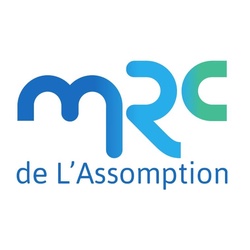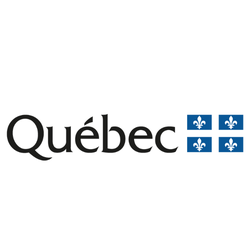
Open
MRC de L'Assomption — FLI/FLS
Last Update: October 27, 2025
QC, Canada
Supports business growth and job creation in Quebec
Loans and Capital investments
At a glance
Funding available
Financing goals
Integrate new technologies
Optimize production processes
Renovate your business/factory
See more
Eligible Funding
- Maximum amount : 100,000 $
- Up to 50% of project cost
Timeline
- Unspecified
Eligible candidates
Eligible Industries
- All industries
Location
- L'Assomption
Legal structures
- Non-profit
- Public or Parapublic institution
- For-profit business
- Social economy enterprise
- Non-financial cooperative
Annual revenue
- All revenue ranges
Organisation size
- All organization sizes
Audience
- Startups
Non-profit candidates
Sector of operation
- Environment
- Economic, Social and Community Development
- Employment and Training
Target groups
- Business owners / entrepreneurs
- Nonprofits / charities
Revenue structures
- Mixed revenue (50%+ earned)
Scope
- Regional
Overview
The MRC de L'Assomption's FLI/FLS grant program provides funding up to $150,000 to support the start-up, improvement, and expansion of businesses with significant economic impact in Quebec. Eligible activities include entrepreneurial succession, business acquisition, and investments in productivity and sustainable practices.
Activities funded
- Démarrage: Support during the early commercialization phase until reaching profitability.
- Relève entrepreneuriale: Financing for individuals or groups acquiring significant stakes (minimum 25%) in existing businesses for succession purposes.
- Acquisition d’entreprise: Financing the acquisition of business assets or shares.
- Amélioration and transformation d’entreprise: Supporting projects for productivity improvement, digital transformation, and sustainable practices implementation.
- Croissance and expansion d’entreprise: Funding for existing profitable enterprises to support new product commercialization, export projects, growth support, or subsidiary establishment.
- Financement temporaire: Short-term bridge loans pending confirmed revenue sources.
- Redressement: Support for businesses undergoing a turnaround with demonstrated management strength and market viability.
Eligibility
- The enterprise must be a legally constituted for-profit organization under Quebec or Canadian law or a collective enterprise (cooperatives and NPOs) with commercial activities as defined by the Social Economy Act.
- The business must operate within the territory of the MRC de L’Assomption and have its headquarters in Quebec.
- The company must be registered in the Quebec Enterprise Register (REQ).
- The enterprise must not be listed on the Register of Ineligible Enterprises for Public Contracts (RENA).
- The enterprise should not have failed obligations related to previous financial assistance from the Ministry or MRC within two years prior to the application.
- State-controlled enterprises or those indirectly owned by government authorities are not admissible.
- The company must not be under protection from the Companies' Creditors Arrangement Act or the Bankruptcy and Insolvency Act.
- The enterprise must not have ethical or environmental violations that could harm the integrity of the government or the MRC.
- Projects must have a significant economic impact within the MRC de L’Assomption territory.
- Certain sectors such as production or distribution of weapons, fossil fuels, gambling, violent sports, and sexual exploitation are ineligible unless specified otherwise.
- The project must not be in the pre-startup stage but should be in the phase of commercialization.
Who is eligible?
- Legally constituted for-profit enterprises under the laws of Quebec or Canada.
- Collective enterprises such as cooperatives and non-profit organizations engaged in commercial activities, in accordance with the Social Economy Act.
- Businesses that are operational within the territory of MRC de L’Assomption and have their head office in Quebec.
- Enterprises involved in start-up, entrepreneurial succession, business improvement and transformation, expansion, and temporary financing projects.
- Businesses supporting economic development in MRC de L’Assomption.
Who is not eligible
- Applicants listed on the Register of enterprises not eligible for public contracts (RENA), including their subcontractors registered under RENA.
- Entities that have failed to meet obligations on previous financial aid from the Ministry or regional county municipality within the last two years.
- State-owned enterprises or those controlled by municipal, provincial, or federal governments or majority-owned by a state corporation.
- Companies under protection of the Companies' Creditors Arrangement Act or Bankruptcy and Insolvency Act.
- Entities with unethical behavior that could damage the integrity or probity of the government or regional county municipality.
- Companies with poor environmental responsibility.
- Enterprises with a history of not respecting labor standards or human rights legislation.
- Businesses involved in the production or distribution of arms.
- Industries relating to exploration, extraction, drilling, production, and refining of fossil fuels, except for activities transitioning to a low-carbon economy.
- Gambling and betting enterprises, including casinos, bingo halls, and gaming terminals.
- Businesses engaged in violent gaming, combat sports involving any living species, racing, or similar activities.
- Enterprises involved in sexual exploitation, such as erotic bars, escort agencies, erotic massage parlors, or swingers' clubs, and production of pornographic material.
- Real estate management and development businesses.
- Entities producing, selling, and servicing tobacco or drugs, except for compliant cannabis and industrial hemp interventions.
Eligible expenses
- The need for additional working capital compared to current expenses, necessary to carry out the company's project for a maximum period of two years.
- Capital expenditures strictly and directly related to the realization of the company’s project, such as the acquisition of technology, land, buildings, equipment, machinery, and rolling stock, as well as construction, expansion, renovation, and landscaping of the premises.
- Professional fees incurred prior to the realization of the company’s project, such as feasibility analysis, external audit, or impact study.
- Professional fees strictly and directly related to the realization of the company’s project, such as implementation of technology, equipment, and machinery, as well as acquisition, construction, renovation, and landscaping of the premises.
- Acquisition expenses for ownership interests in the targeted company like voting shares or parts, and assets of the targeted company.
- Professional fees strictly and directly related to the transaction and acquisition of the company as well as the transfer of the company's management.
Eligible geographic areas
- Territory of the MRC de L'Assomption
Selection criteria
- Viability of the business: The project must demonstrate permanent profitability and repayment capacity, along with good future prospects.
- Knowledge and experience of the promoters: Promoters should showcase relevant knowledge and experience in their field, and management skills. If deficiencies are noted, sufficient internal and external support must be available.
- Environmental and societal impacts: Projects that contribute positively to the socio-economic and environmental balance of the territory, emphasizing sustainable business practices, are valued.
- Openness towards workers: The attitude of businesses towards their workers, as well as their approach to labor relations, is considered in the evaluation of a financing application.
- Participation of other financial partners: It's desirable for projects to have capital contributions from other sources, such as financial institutions and promoters' investments.
- Perpetuation of funds: The funding's impact on the portfolio, focusing on maintaining balance and ensuring the continuity of the funds, is analyzed for each investment case.
How to apply
1
Preparation of the required documents
- Complete the financial assistance application form ensuring it is correctly dated and signed.
- Prepare a detailed business plan or project description according to the requirements of the financial assistance application.
- Provide a detailed breakdown of project-related expenses.
- Prepare the financial structure of the project and obtain confirmation of other financial aids or funding.
- Provide the financial statements for the last three years.
- Produce interim financial statements if the previous ones are more than six months old or if the business is less than one year old.
- Prepare projected financial statements.
- Include a statement of compliance regarding the francisation requirements or a copy of the francisation certificate, if applicable.
- Include a statement of compliance regarding employment equity or a copy of the Employment Equity Access Program, if applicable.
- Gather any other documents required by the MRC of L’Assomption.
2
Submission of the application
- Send all required documents to the MRC of L'Assomption for the application to be processed and analyzed.
- Follow up with the MRC to ensure that all necessary information and documents have been received and are complete.
Additional information
- The collective investment policy of the local investment funds (FLI) and local solidarity funds (FLS) in the MRC de L'Assomption was adopted on August 28, 2023, under resolution #23-08-154.
- Investments are guided by the principle of sustainability, aiming for the self-financing of the funds.
- There is a cooperative framework for investment decisions between the FLI and FLS to maximize resource utilization.
- A dynamic application of the FLS is observed in the majority of the funding cases handled by the MRC de L'Assomption.
- Exceptionally, one fund may participate more than the other if the financial situation deems it necessary.
- A single loan contract is employed, detailing the total loan amount and weighted interest rate for combined loans.
- Legal and recovery actions are shared between the FLI and FLS according to their investment proportions.
Apply to this program
Frequently Asked Questions about the MRC de L'Assomption — FLI/FLS Program
Here are answers to the most common questions about the MRC de L'Assomption — FLI/FLS. This section explains what the program is, how much funding is available, eligibility requirements, application deadlines, and other important details to help you determine if this grant is right for your business.
What is the MRC de L'Assomption — FLI/FLS?
How much funding can be received?
Who is eligible for the MRC de L'Assomption — FLI/FLS program?
What expenses are eligible under MRC de L'Assomption — FLI/FLS?
Where is the MRC de L'Assomption — FLI/FLS available?
Is the MRC de L'Assomption — FLI/FLS a grant, loan, or tax credit?
Who are the financial supporters of the MRC de L'Assomption �— FLI/FLS?
Apply to this program
More programs like this

Grant and FundingClosed
PSCE – Component 2
Investissement Québec (IQ)Non-repayable funding to support SMEs’ export market diversification

Grant and FundingClosed
MAPAQ — Food Processing Program — Component 2
Ministry of Agriculture, Fisheries and Food (MAPAQ)Enhancing productivity through food industry automation assistance

Grant and FundingOpen
ESSOR – Component 1C: Support for investment projects (implementing a digital plan)
Investissement Québec (IQ)Support for investment projects in Quebec

Grant and FundingOpen
SCALE AI — Acceleration
Scale AI ClusterSupports Canadian AI startups and SMEs focused on value chains

Tax CreditsOpen
Development of E-Business Tax Credit (CDAE)
Investissement Québec (IQ)Tax credit for development of a Quebec e-business

Tax CreditsOpen
Research, Innovation and Commercialization Tax Credit (CRIC)
Gouvernement du QuébecRefundable tax credit for Quebec business R&D and precommercialization

Grant and FundingOpen
Support for biofood exports - individual projects
Ministry of Agriculture, Fisheries and Food (MAPAQ)SEB supports Quebec agri-food market expansion outside Quebec

Grant and FundingSuspended
Individual Market Access Support (SIAM)
Aliments du QuébecMarket Access Support for Quebec Food Processors

Expert AdviceLoans and Capital investmentsOpen
Panorama Program
Investissement Québec (IQ)Supports export diversification with financial services and expert guidance

Loans and Capital investmentsOpen
Financing to respond to the offensive of new tariffs and for initiatives for resilient and exporting companies (FRONTIERE)
Investissement Québec (IQ)Supports Québec exporters impacted by new U.S. tariffs
Sign up to our platform to access the MRC de L'Assomption — FLI/FLS information sheet for free
Get access to 4,000+ programs, practical guides, personalized alerts, and an AI assistant to support your grant applications.